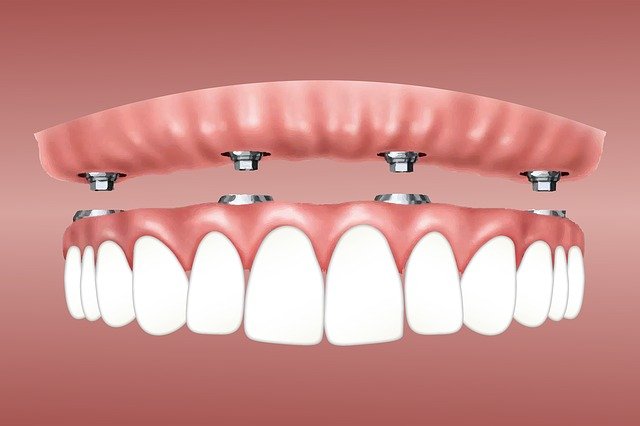
Do Fake Teeth Look as Bad as People Think?
It is very often said that false teeth are no good; they look bad, are loose, and are for the ‘very old’. Is this really the case?
The answer is a big NO. It all depends on the dentist, the technician, and the patient. High-quality natural-looking dentures can be made comfortable for you and indeed are very often a treatment of choice. Tooth loss can occur for many reasons (periodontal disease, decay, or trauma). Dentures have been used to replace missing teeth for many years now. Alternative methods used to replace missing teeth include dental implants and fixed bridges.
The loss of your teeth can have negative effects on your self-confidence, your ability to chew food, and your bite. Since your teeth provide structure and support to your cheeks, tooth loss can result in the sagging of your cheeks and make you appear older than you are. It is essential that your missing teeth are replaced as soon as possible.
Dentures are removable replacements for your teeth, designed to look and function like your own natural teeth and surrounding gum tissues. Modern-day dentures can look very realistic and natural and feel comfortable.
When all your teeth are missing, a complete denture is used to replace them, whereas if only a few teeth need replacing, a partial denture or overdenture is used. Partial dentures can prevent your existing healthy teeth from shifting following tooth loss.
Dentures are generally fabricated from acrylic resins. Partial dentures can also be made from cobalt chrome and acrylic; these tend to be less obtrusive in the mouth and can be more stable. With advances in modern cosmetic dentistry, there are a wide variety of materials available for dentures, and your dentist may give you some options, including the latest flexible Valplast cosmetic dentures.
Implant retained dentures
For a cost-effective way of replacing many missing teeth, dentures can be held very securely in place with implants, providing a great improvement from traditional removable dentures. No need for denture adhesives, pastes, sticky gum, or powders.
Implants help to maintain your facial structures by preserving the remaining bone in your jaws. Minimizes wrinkles around the mouth by restoring lost lip support. Markedly improves your ability to chew – you can eat whatever you want and enjoy your food again. Secure and comfortable – no more embarrassing moments caused by loose dentures
Holding dentures in place
Dentures should be held in place by their natural suction to your gums; sometimes a fixative may also be used. However, they tend to come loose and this can cause difficulties when trying to eat certain foods. Dentures can be fixed securely in place by dental implants or mini-implants, which can give you the confidence to eat whatever you want without having to worry about your dentures coming loose or falling out. More patients seem to be opting for treatment with implants now. Despite their higher cost, they have a dramatic effect on improving the quality of life.
How should I look after my dentures?
It is important to keep your dentures clean at all times. You should remove your dentures at night to give your gums “a rest” and the chance to be exposed to your natural saliva, which will keep them healthy. It is highly recommended that you brush your dentures and soak them in a glass of cold water whilst you aren’t wearing them. You can add special cleaning tablets to the water when you soak your dentures. Always brush your dentures before putting them back into your mouth. If your dentures begin to collect debris or stains that you cannot remove by normal brushing, your dentist or hygienist will be able to professionally clean your dentures for you.
It is important to visit your dentist regularly to ensure that your dentures are in good condition and continue to fit your gums, as the shape of your gums and underlying bone can change with time. Loose-fitting dentures can cause irritation and inflammation of your gums and problems with eating and speech.
